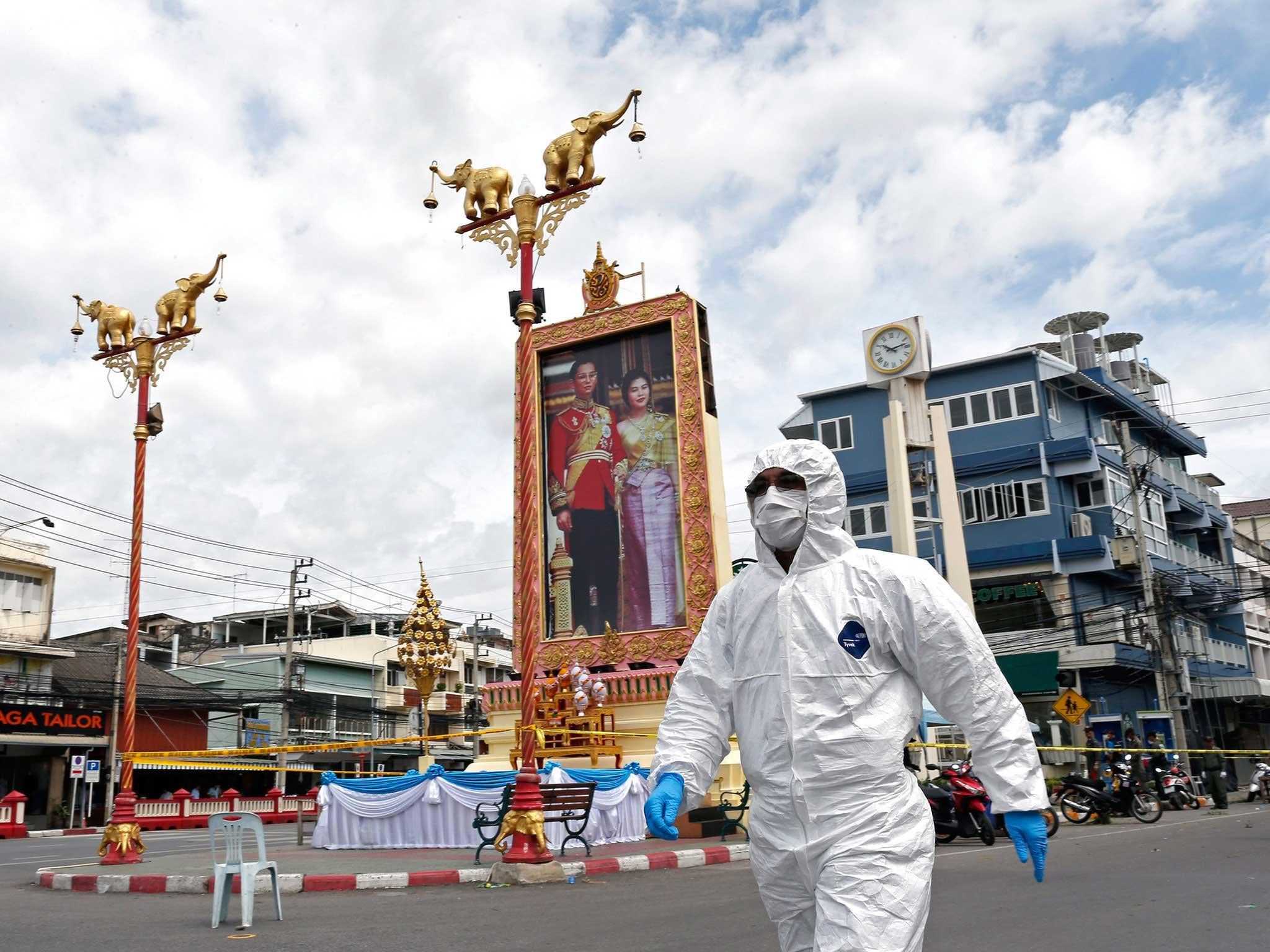Thailand bombings: What do the latest attacks mean for the country's 'Teflon' tourism industry?
At least four people have died and dozens injured after a series of blasts across the country, despite it being seen as 'safe' for holidaymakers

One million British tourists visit Thailand each year, and despite the political turmoil that has characterised the country for several decades, the South East Asian nation is seen as “safe” — especially compared with holiday locations such as North Africa and Turkey.
A bomb attack a year ago at the Erewan Shrine in the capital, Bangkok, killed 20 people, including a British citizen. But the event was seen as an isolated incident, and once again Thailand’s tourist industry appeared to shrug off the tragedy.
But the latest series of explosions that took place as the nation celebrated the birthday of the Queen of Thailand represents an alarming escalation of the bloody Islamist insurgency that has cost several thousand lives in the far south of the country — where martial law still prevails.
Early reports suggest that these attacks were not aimed directly at tourists, unlike massacres in Egypt, Turkey and Tunisia. But now Patong, the main tourist draw on the island of Phuket, as well as the resort of Hua Hin on the Gulf of Thailand, are in the headlines. If this marks a fresh campaign of violence, “Teflon Thailand” may not be able to brush off tragedies as easily as it has in the past.
More widely, the sense that travellers worldwide are under attack is deepening, even if the risks to the individual tourist remain extremely low. This week the world’s biggest holiday company, Tui (owner of Thomson and First Choice) reported “lower demand due to geopolitical events” in Europe and beyond.
In pictures: Thailand bombings
Show all 7Destinations from Turkey to Thailand are heavily dependent on tourism. Egypt and Tunisia in particular have been traumatised by the downturn triggered by terrorism. It remains to be seen if a combination of tougher security and resilience among visitors will be sufficient to maintain the appetite for travel that sustains hundreds of millions of jobs worldwide.
Subscribe to Independent Premium to bookmark this article
Want to bookmark your favourite articles and stories to read or reference later? Start your Independent Premium subscription today.

Join our commenting forum
Join thought-provoking conversations, follow other Independent readers and see their replies